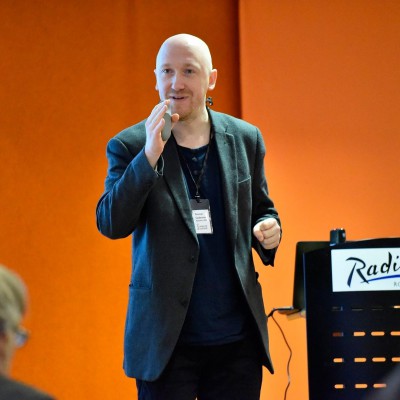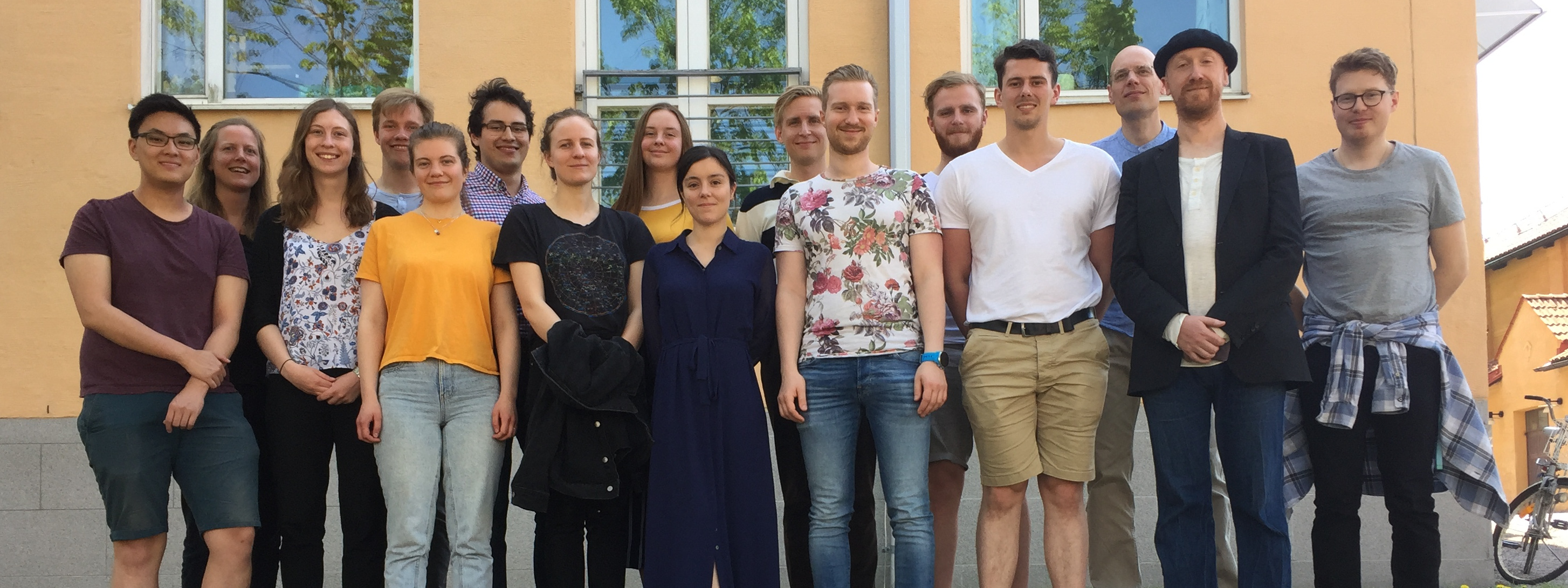The travel period is now just completed, and I am looking forward to writing a report and summary of some of the most important discoveries and news discovered at these meetings in a later blog. Our field – modelling of biological systems – is in a very intensive phase of expansion right now, with a wide variety of events and simultaneous developments going on. Apart from the 4 meetings I/we have attended in the last 3-4 weeks, there are several other important events that we will miss, that are happening now (FOSBE, Magdeburg, Oct 9-12, on Foundations of Systems biology in Engineering) and within the next few weeks (e.g. the first conf of the European Association of Systems Medicine, Berlin, Oct 26-28, Berlin, link).
 Figure 1: Me giving a lecture, before recieving the award Nytänkaren from the Swedish Fund for Research without Animal Experiments.
Figure 1: Me giving a lecture, before recieving the award Nytänkaren from the Swedish Fund for Research without Animal Experiments.
For now, however, I just want to say that one of the developments that is especially interesting to me right now is that concerning modelling in drug and device certifications, and how modelling there can be used in a 3R context, i.e. to replace, reduce and refine usage of animal experiments. I have previously won the first edition of a newly instated prize on this topic – Nytänkaren, Fig 1 – and several of the workshops and conferences I have just attended have had important news on the topic. For instance, I learned that the Food and Drug Administration in the US just have finalized a new report on how to use modelling in device certifications (Fig 2). I also learned interesting details of a second report, due to be published in 2017, which together with the first report will consitute a first complete guide to how modelling should be used in biomedical device certifications. In practice, the same guide will be used as a proxy also for certifications of new drugs, since the principles behind a sound usage of modelling are quite general. In fact, these guides have drawn quite a lot from similar guides already developed and established by NASA, where simulations already are considered mainstream in the development and certification of new space products. In short, I am quite impressed by these guidelines, and think that they have identified more sound principles than are being used in much of today’s research. In other words, these are really important developments! Figure 2: The new report just issued by FDA. Note the date, it was published a few weeks ago!
Figure 2: The new report just issued by FDA. Note the date, it was published a few weeks ago!
As a follow-up to these developments, and to me recieving the 3R award Nytänkaren, I have been invited to give a keynote lecture at a workshop at Karolinska Institutet, which takes place today. This workshop is arranged by Swetox and has the overall title “Replace animal use and increase scientific impact”. My talk is entitled “When laying the puzzle instead of just generating new pieces, animal experiments become increasingly irrelevant”. In this talk, I will give a more detailed report on some of the developments above, of my own research on the topic, and about some of the most important showcases that already are existing in the field. If you cannot attend the meeting yourself, you can still check out much of the material: some slides on the FDA developments are available here and a recent overview of our own research including an already FDA-approved glucose simulation model is found here. Finally, a two-sentence summary of the main statement given in the title of my talk is as follows: “if you want to test hypotheses regarding human mechanisms on the systems level, and create a systems-level understanding for the human system, you need data from a single system: humans. Thus, when science switches its focus to this more important endeavor, instead of just generating new hypotheses and pieces of knowledge that never are forged together and tested in a systems-level context, then animal experiments will become increasingly irrelevant”.
 Figure 3: First page of my keynote presentation today. It is one of the first times, perhaps even the first time, that I am giving a lecture denoted as keynote, so I am looking much forward to it!
Figure 3: First page of my keynote presentation today. It is one of the first times, perhaps even the first time, that I am giving a lecture denoted as keynote, so I am looking much forward to it!

